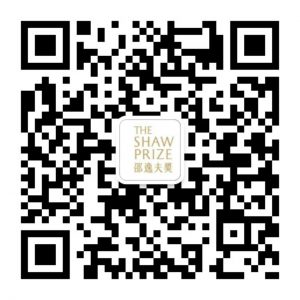for his profound contributions to modern mathematical statistics and in particular the development of optimal algorithms for statistical estimation in the presence of noise and of efficient techniques for sparse representation and recovery in large data-sets.
The Shaw Prize in Mathematical Sciences for 2013 is awarded to David L Donoho, Anne T and Robert M Bass Professor of the Humanities and Sciences, and Professor of Statistics at Stanford University, USA for his profound contributions to modern mathematical statistics and in particular the development of optimal algorithms for statistical estimation in the presence of noise and of efficient techniques for sparse representation and recovery in large data-sets.
The dramatic developments in technology in the last half century present fundamental new challenges in theoretical and applied mathematical statistics. David Donoho has played a major role in developing new mathematical and statistical tools to deal with such problems ranging from large data-sets in high dimensions to contamination with noise. His work provides fast, efficient and often optimal algorithms which are founded on rigorous mathematical analysis.
For more than two decades David Donoho has been a leading figure in mathematical statistics. His introduction of novel mathematical tools and ideas has helped shape both the theoretical and applied sides of modern statistics. His work is characterized by the development of fast computational algorithms together with rigorous mathematical analysis for a wide range of statistical and engineering problems.
A central problem in statistics is to devise optimal and efficient methods for estimating (possibly non-smooth) functions based on observed data which has been polluted by (often unknown) noise. Optimality here means that, as the sample size increases, the error in the estimation should decrease as fast as that for an optimal interpolation of the underlying function. The widely used least square regression method is known to be non-optimal for many classes of functions and noise that are encountered in important applications, for example non-smooth functions and non-Gaussian noise. Together with Iain Johnstone, Donoho developed provably almost optimal (that is, up to a factor of a power of the logarithm of the sample size) algorithms for function estimation in wavelet bases. Their “soft thresholding” algorithm is now one of the most widely used algorithms in statistical applications.
David L Donoho was born in 1957 in Los Angeles, USA and is currently Anne T and Robert M Bass Professor of the Humanities and Sciences, and Professor of Statistics at Stanford University, USA. He graduated from Princeton University in 1978 and received his PhD from Harvard University in 1983. From 1984 to 1990, he was on the faculty of the University of California, Berkeley before moving to Stanford. He is a fellow of the American Academy of Arts and Sciences, a SIAM Fellow, a foreign associate of the French Academy of Sciences, and a member of the US National Academy of Sciences.
